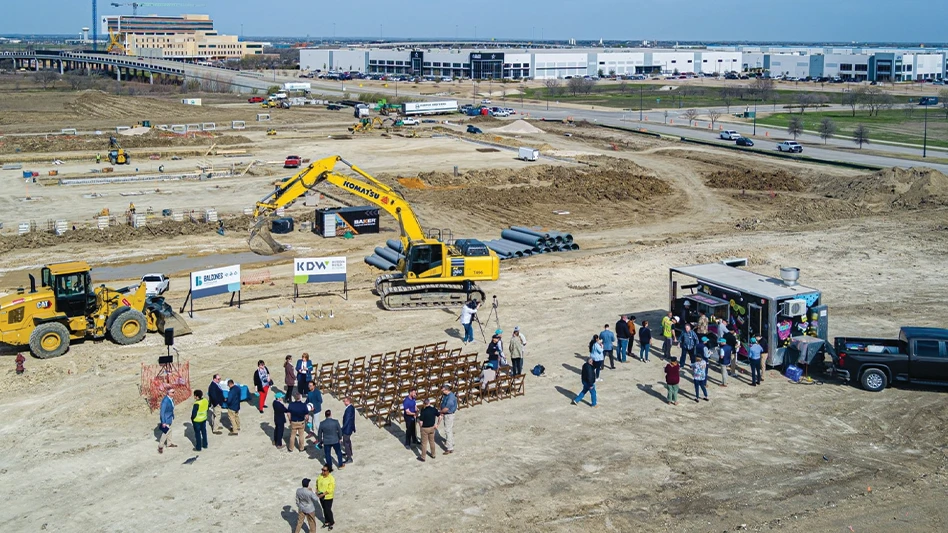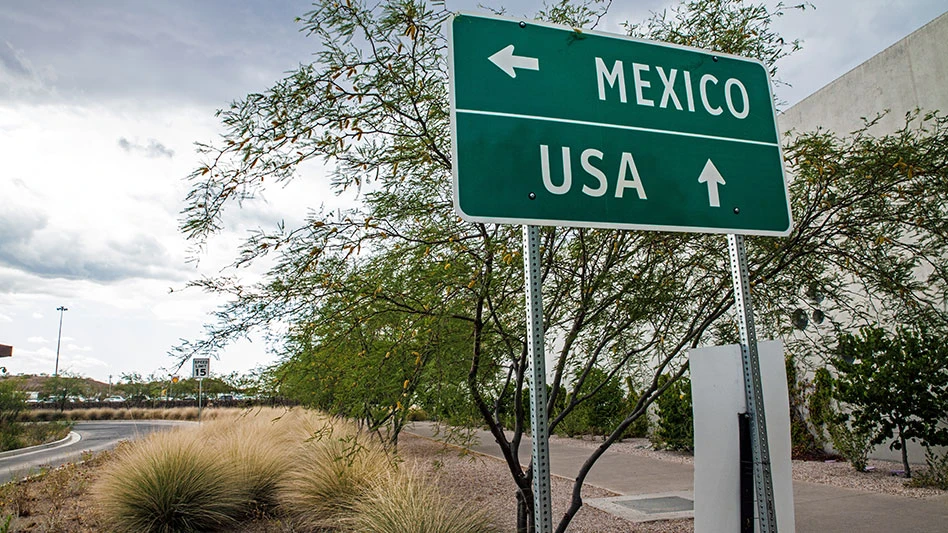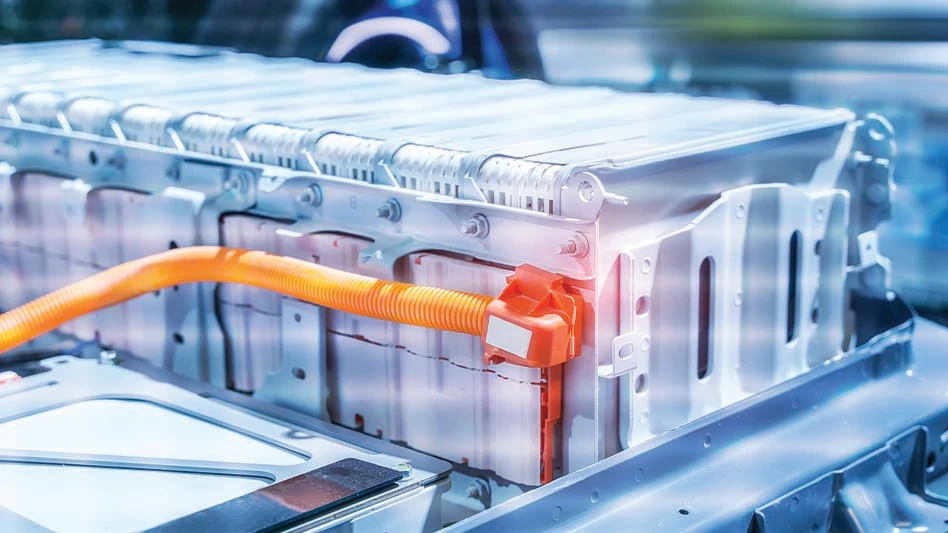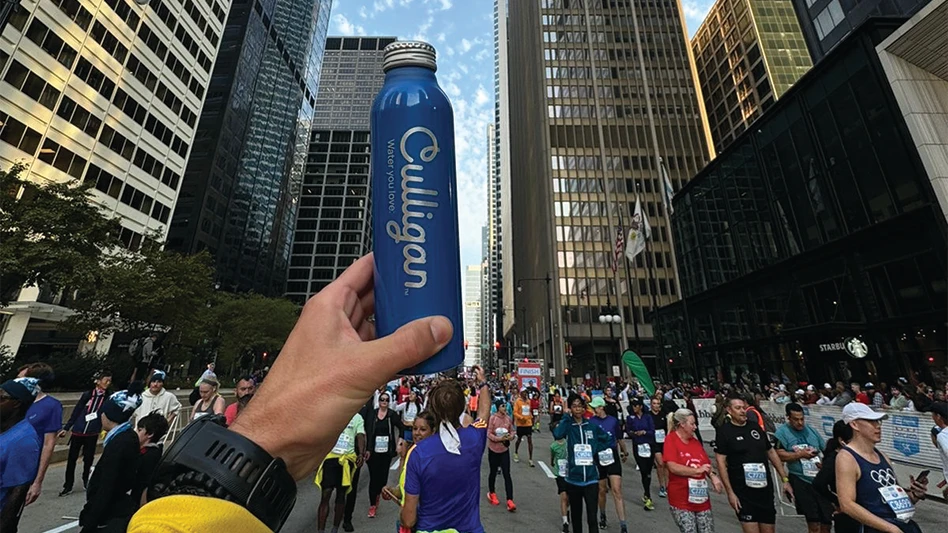
Recycling Today archive
Toronto-based lithium-ion battery (LIB) recycler Li-Cycle Holdings Corp. and Glencore International AG, a wholly owned subsidiary of Switzerland-based Glencore plc, have signed a letter of intent to jointly study the feasibility of, and later, develop a Hub facility in Portovesme, Italy. The Portovesme Hub would produce critical battery materials, including nickel, cobalt and lithium from recycled battery content.
The companies say the facility will leverage Li-Cycle’s hydrometallurgical technology and is expected to be the largest producer of sustainable battery-grade products in Europe.
RELATED: Li-Cycle, VinES announce strategic, long-term battery recycling agreement
Located in Sardinia, Italy, the Portovesme metallurgical complex consists of a lead-zinc smelter and hydrometallurgical facility which first started operations in 1929. The Portovesme site has substantial existing infrastructure, including access to a port, utilities, processing equipment from the hydrometallurgical plant and an experienced workforce.
Li-Cycle and Glencore, which produces, recycles and markets nickel and cobalt for the production of LIBs, will jointly commence a definitive feasibility study (DFS) for this project within 60 days from their announcement. The DFS is expected to be completed by mid-2024. Subject to a final investment decision by the companies, the project will proceed to construction with commissioning of the Portovesme Hub expected to commence in late 2026 to early 2027.
“The planned Portovesme Hub is a landmark project for Europe’s battery recycling industry and is expected to be the largest source of recycled battery-grade lithium on the continent,” Li-Cycle co-founder and Executive Chair Tim Johnston says. “We are excited to expand our global strategic partnership with Glencore and build on our learnings from the Rochester Hub in support of the rapid growth of the lithium-ion battery ecosystem in an environmentally friendly manner.”
Li-Cycle and Glencore say they also anticipate forming a 50-50 joint venture that would repurpose part of the existing Glencore metallurgical complex to create the Portovesme Hub. This would enable a cost-efficient and expedited development plan. The project also contemplates competitive long-term financing from Glencore to fund Li-Cycle’s share of the capital investment.
Once operational, the companies say the Portovesme Hub is expected to have processing capacity of up to 50,000 to 70,000 tons of black mass annually, or the equivalent of up to 36 GWh of LIBs. The black mass processed at the facility is expected to be supplied from Li-Cycle’s growing Spoke network in Europe and through Glencore’s commercial network.
The companies say the Portovesme Hub is expected to be the first facility of its kind and scale to come online in Europe. Together with Li-Cycle’s Spoke network and Glencore’s battery circularity platform, this facility would enable Europe to get one step closer to closing the loop on manufacturing scrap, as well as end-of-life batteries, fully within Europe, using hydrometallurgical processes.
“This project, combined with our existing footprint in primary supply as well as recycling of battery metals, underpins our ambition to become the circularity partner of choice for the European battery and EV industry,” Glencore Global Head of Recycling Kunal Sinha says. “This also marks a significant step in our collaboration with Li-Cycle, a preferred partner in the lithium-ion battery recycling space.”
RELATED: Glencore a partner in aluminum recycling effort
Sponsored Content
Labor that Works
With 25 years of experience, Leadpoint delivers cost-effective workforce solutions tailored to your needs. We handle the recruiting, hiring, training, and onboarding to deliver stable, productive, and safety-focused teams. Our commitment to safety and quality ensures peace of mind with a reliable workforce that helps you achieve your goals.
The Portovesme Hub, once operational, is expected to provide significant benefits to both companies by enabling an accelerated pathway to a Europe-based postprocessing facility with low capital intensity due to the significant existing infrastructure, equipment and experience workforce at the site.
“Establishing a Hub through the repurposing of our Portovesme site, which could become the first Glencore asset to produce battery-grade lithium, will enable us to truly close the loop for our European OEM and gigafactory customers across all aspects of the supply chain,” Sinha says. “It will shorten delivery times, reduce emissions by minimizing the distance of the freight routes and support Italy and Europe’s ambitions to be a global leader in the circular economy.”
Get curated news on YOUR industry.
Enter your email to receive our newsletters.
Latest from Recycling Today
- Smithers report looks at PCR plastic’s near-term prospects
- Plastics association quantifies US-EU trade dispute impacts
- Nucor expects slimmer profits in early 2025
- CP Group announces new senior vice president
- APR publishes Design Guide in French
- AmSty recorded first sales of PolyRenew Styrene in 2024
- PRE says EU’s plastic recycling industry at a breaking point
- Call2Recycle Canada, Staples Professional expand partnership







